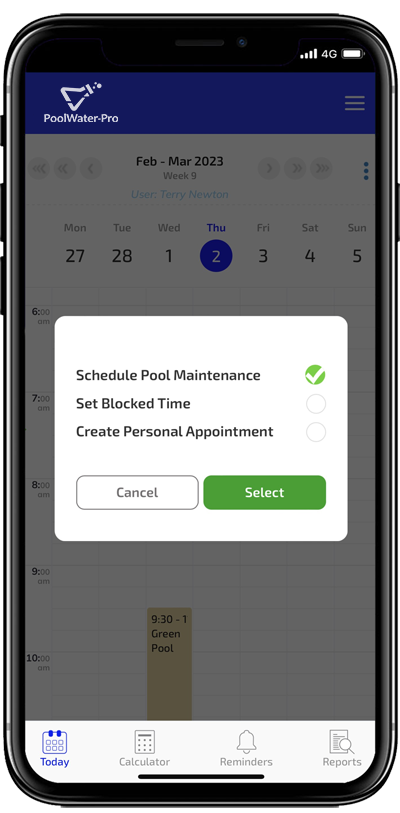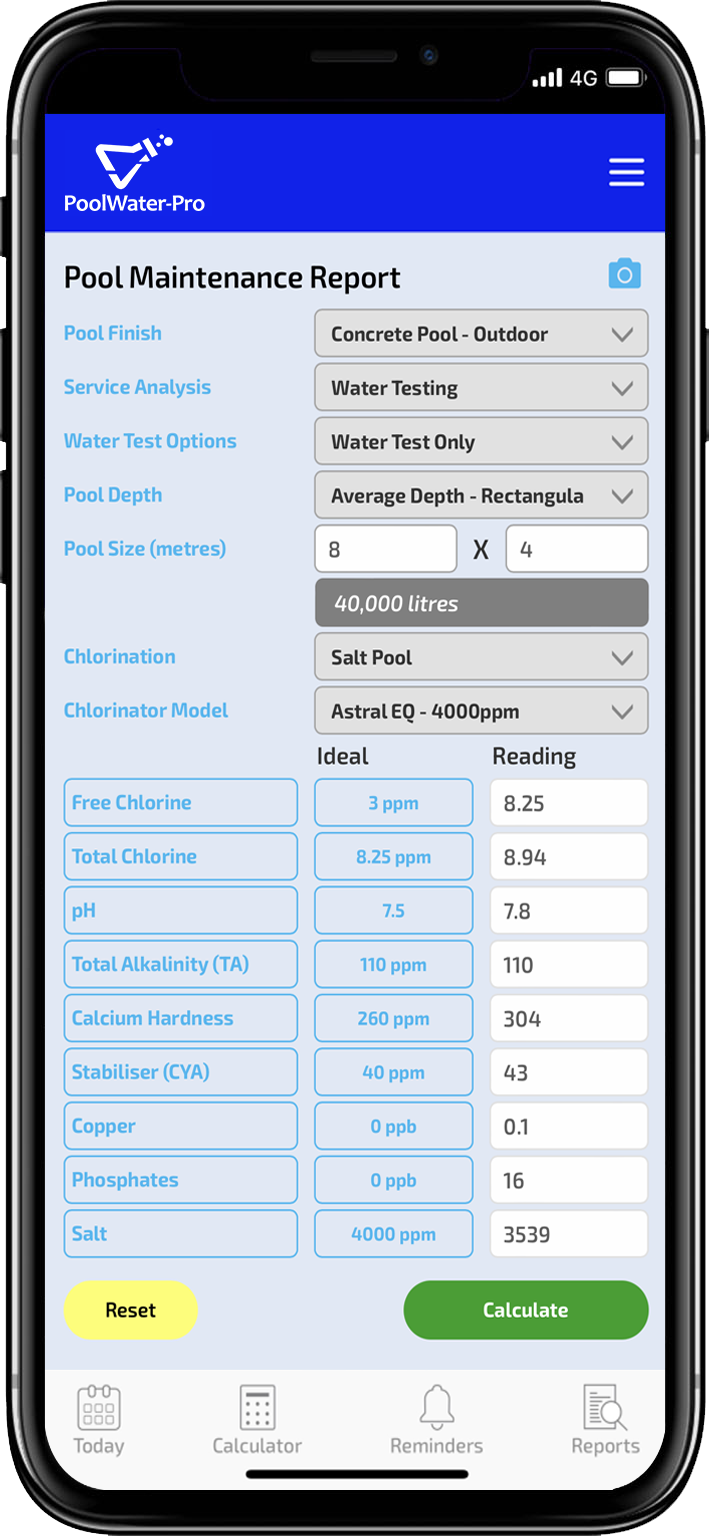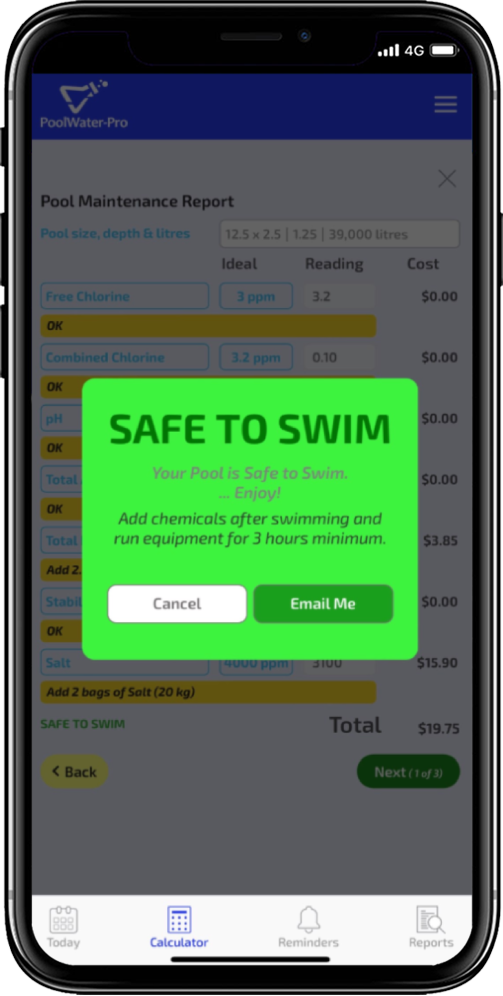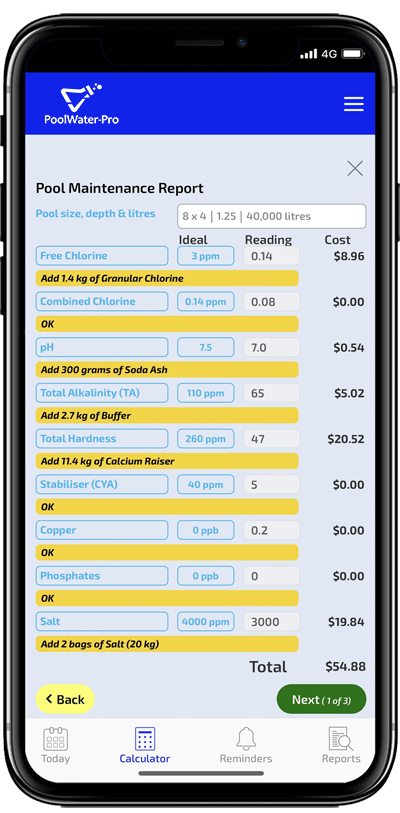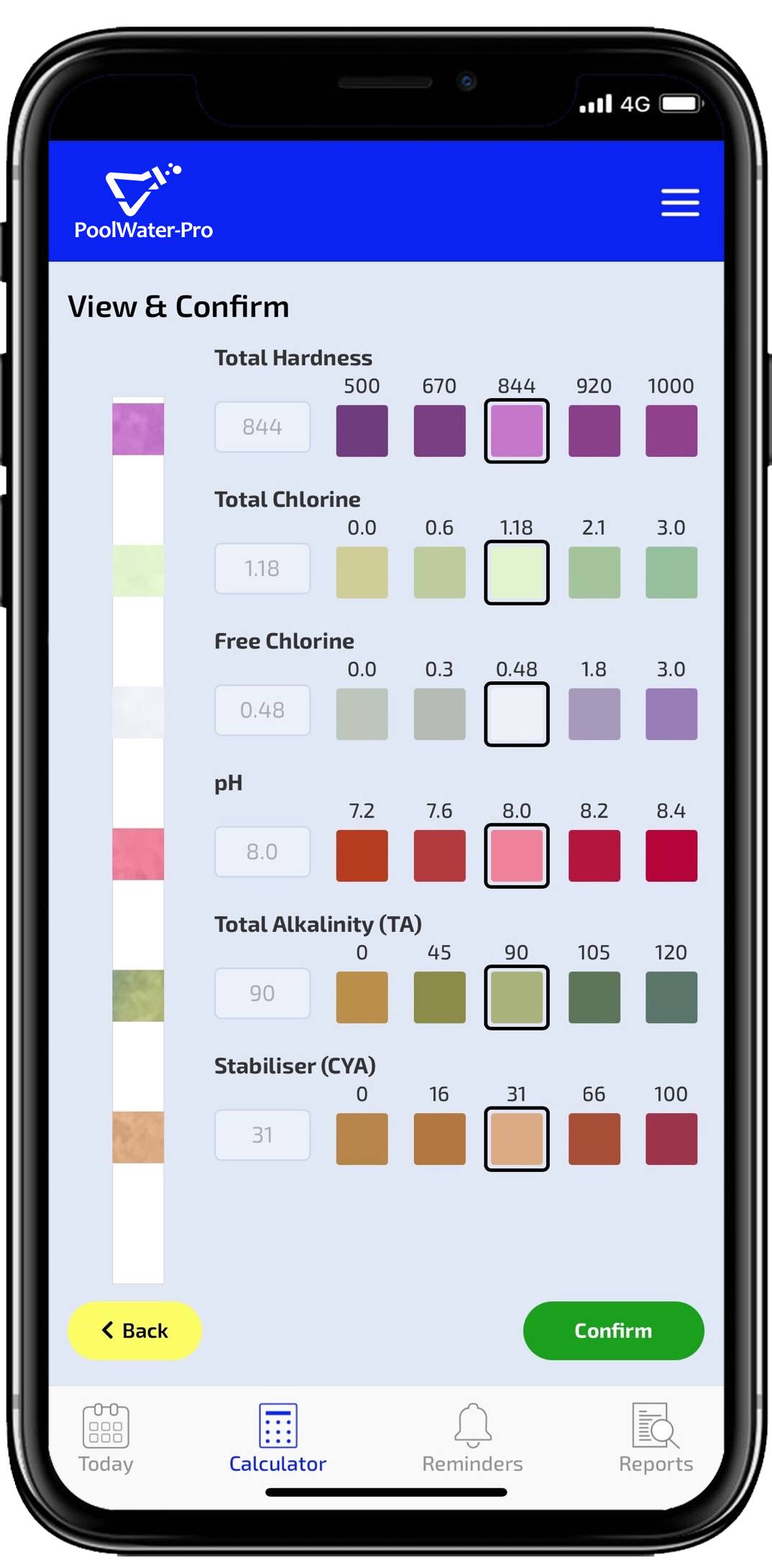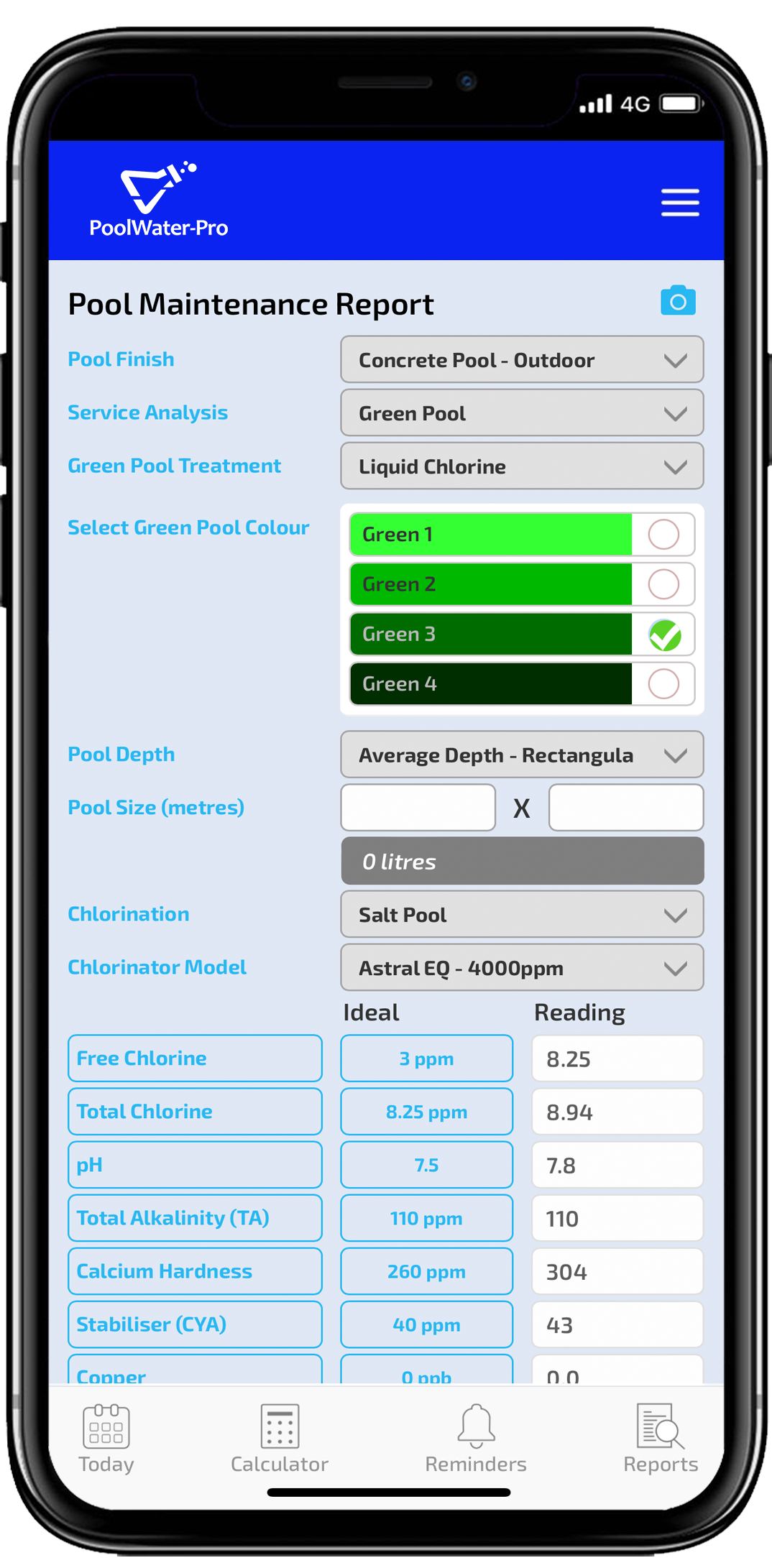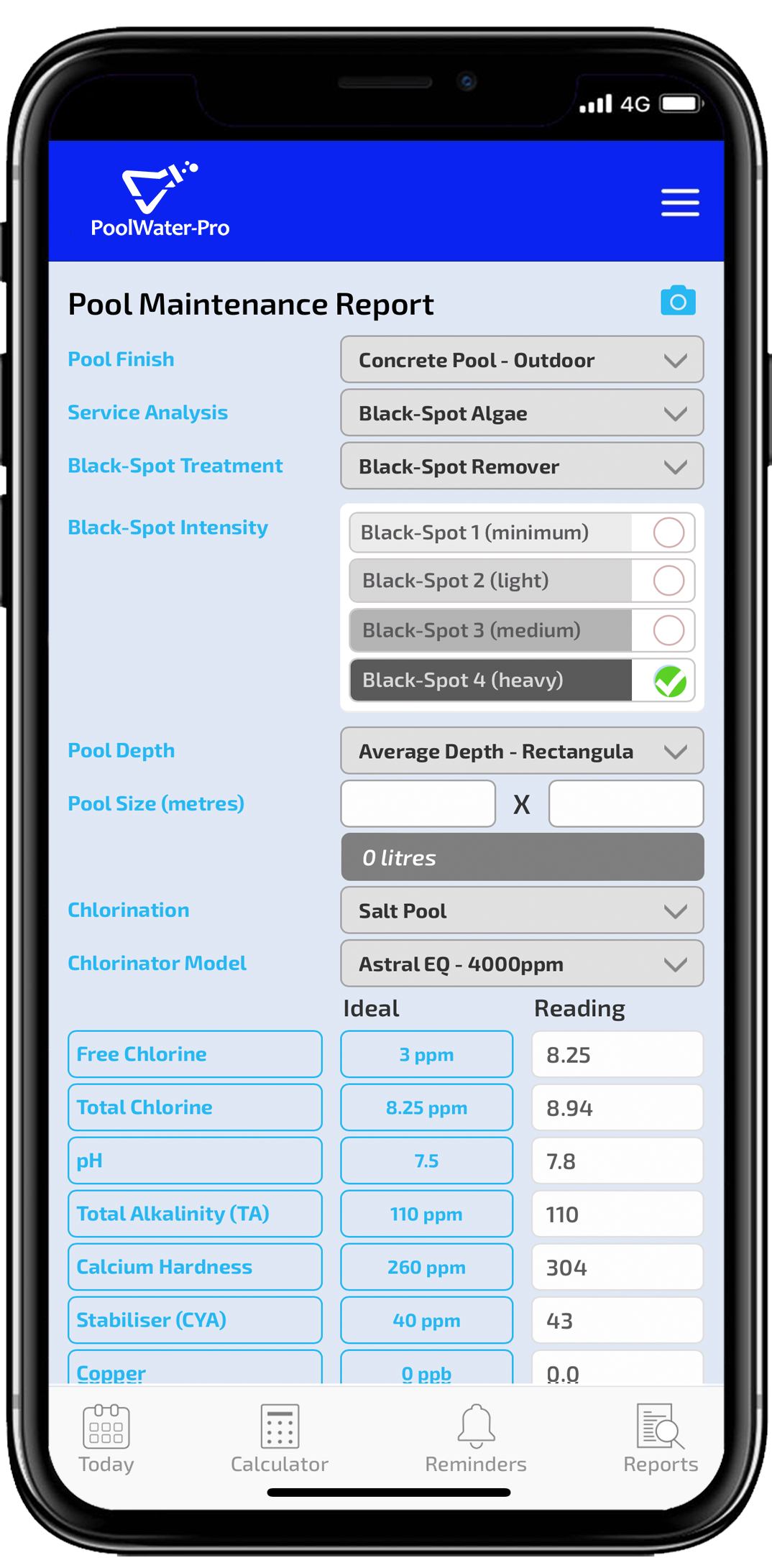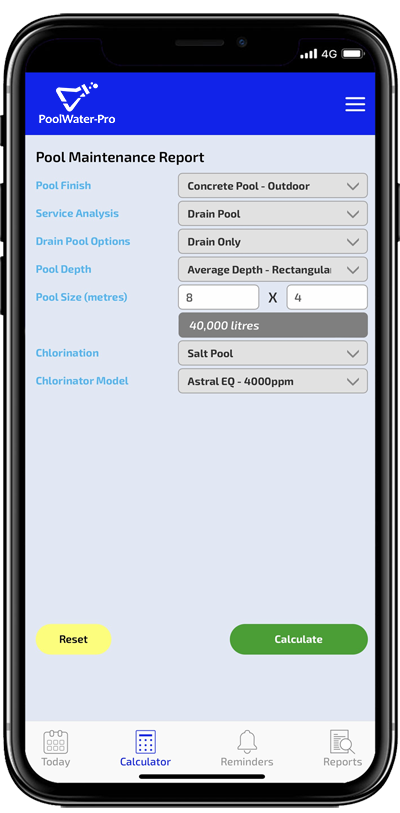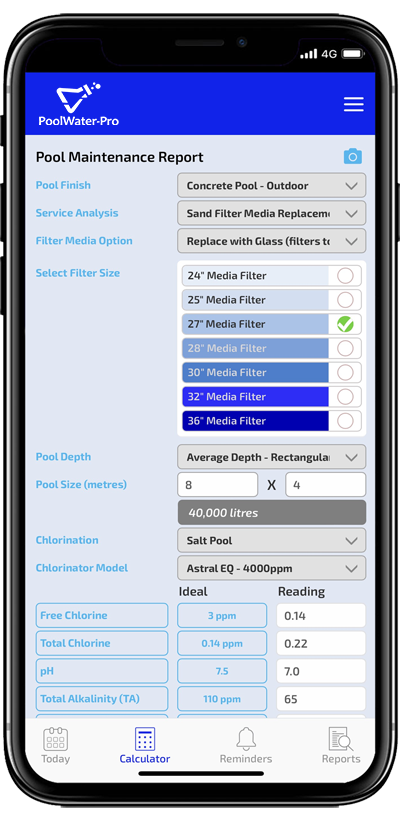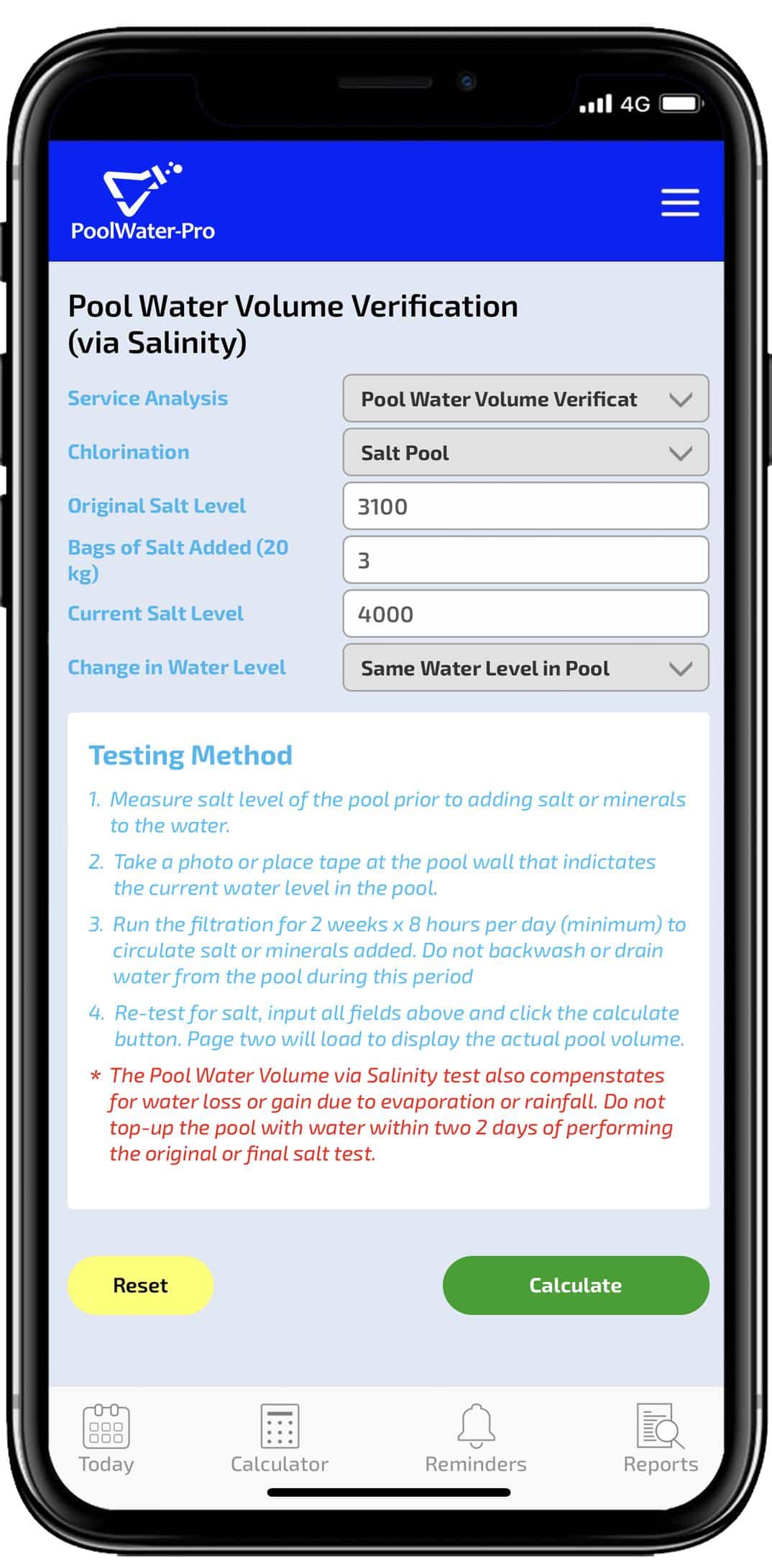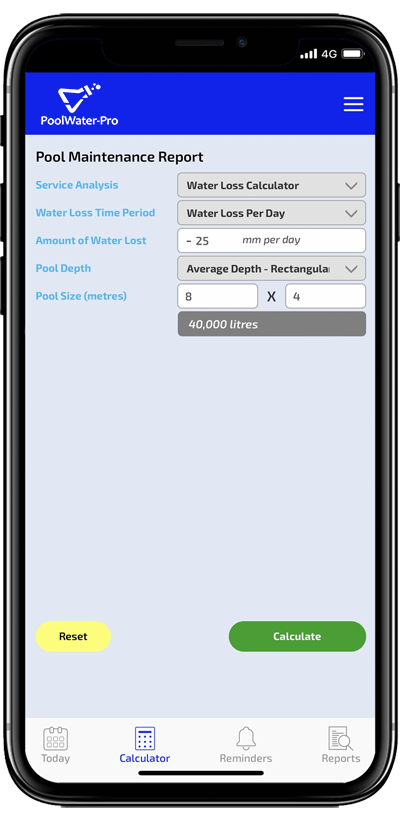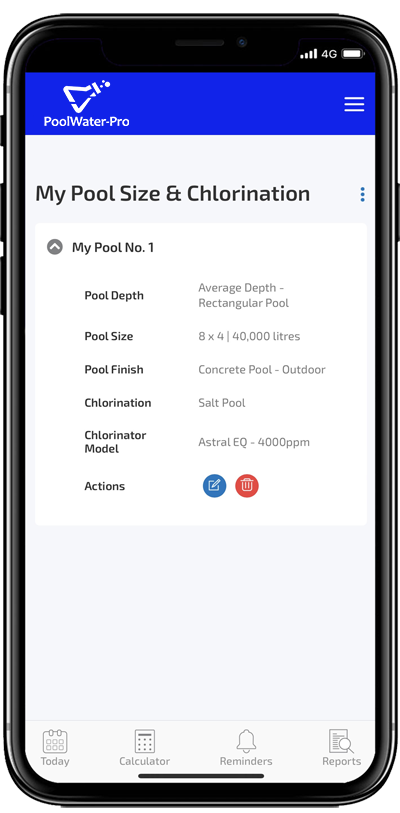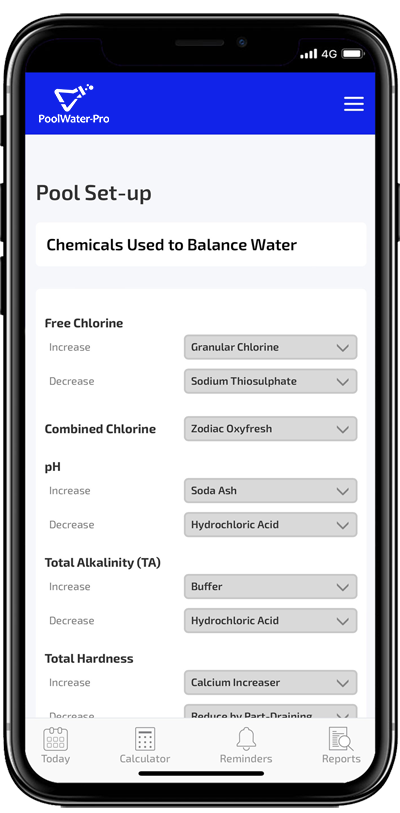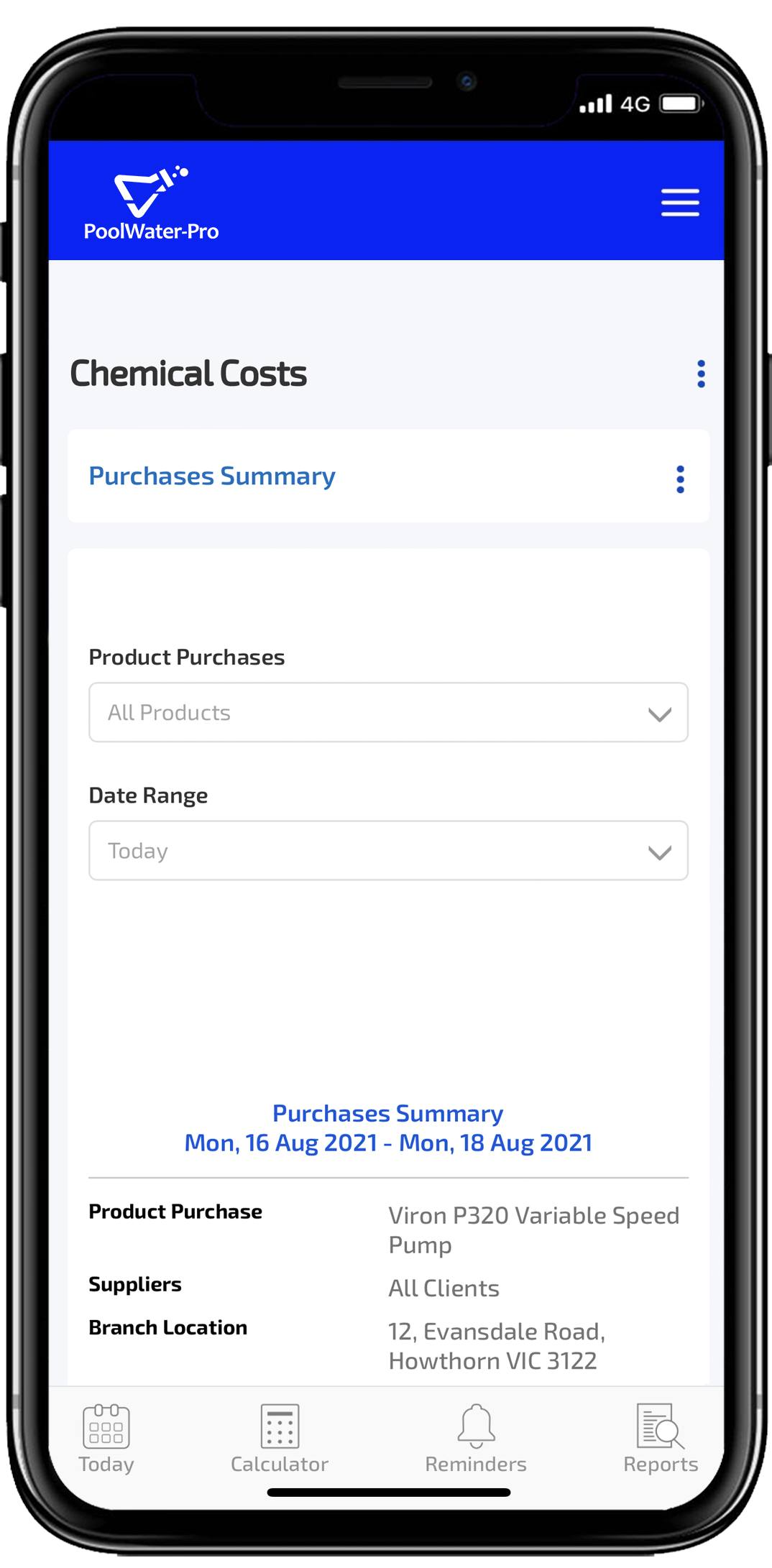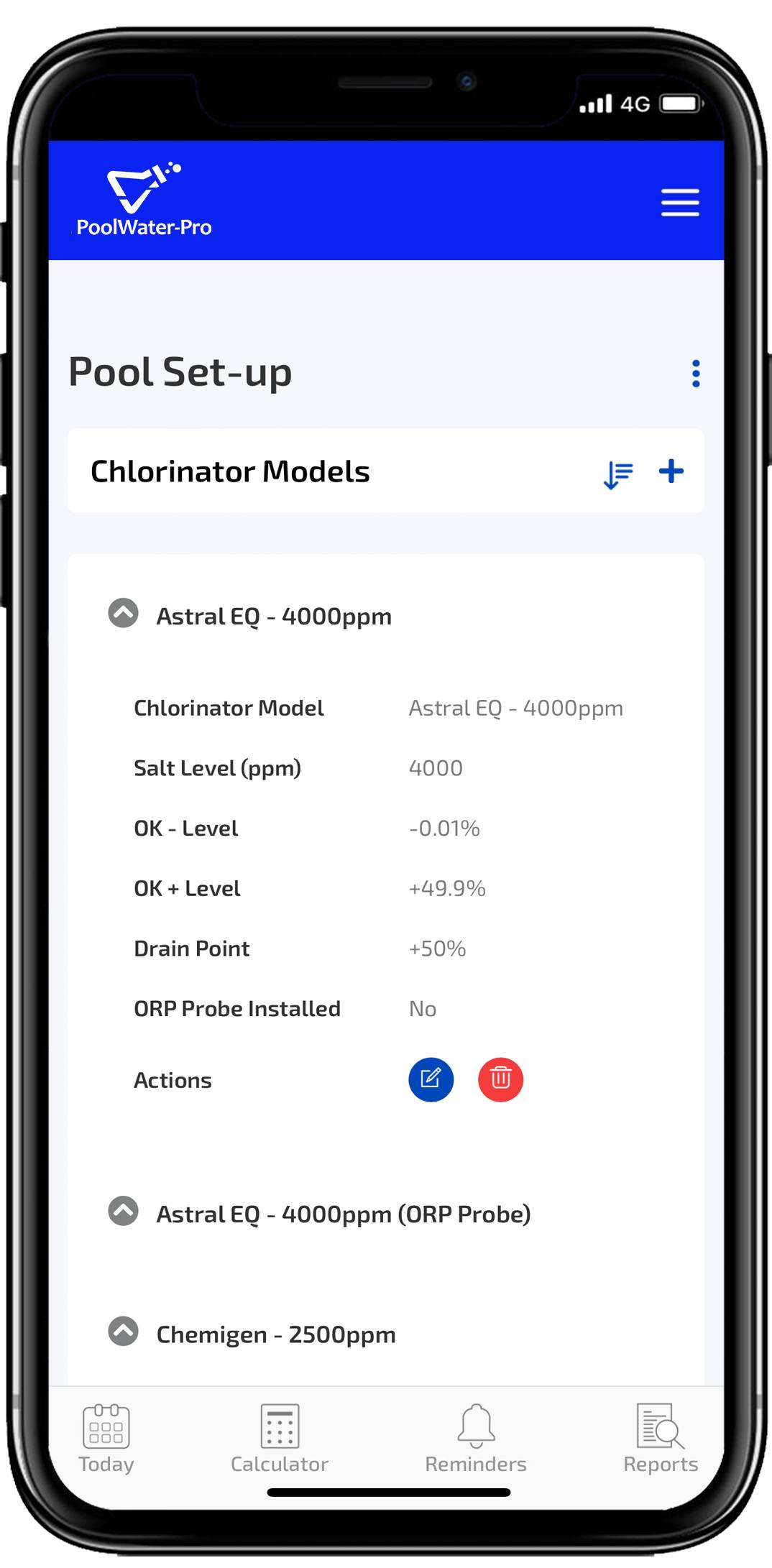Do Pool Test Strips or Test Kits Expire?
To keep your pool water safe, clean and comfortable for swimming, it’s important to regularly test the water. Healthy water will also help to control algae growth and reduce the risk of bacteria or diseases. Pool owners use test strips or test kits to check their pool water, but they do have a limited shelf life which will affect the accuracy of results.
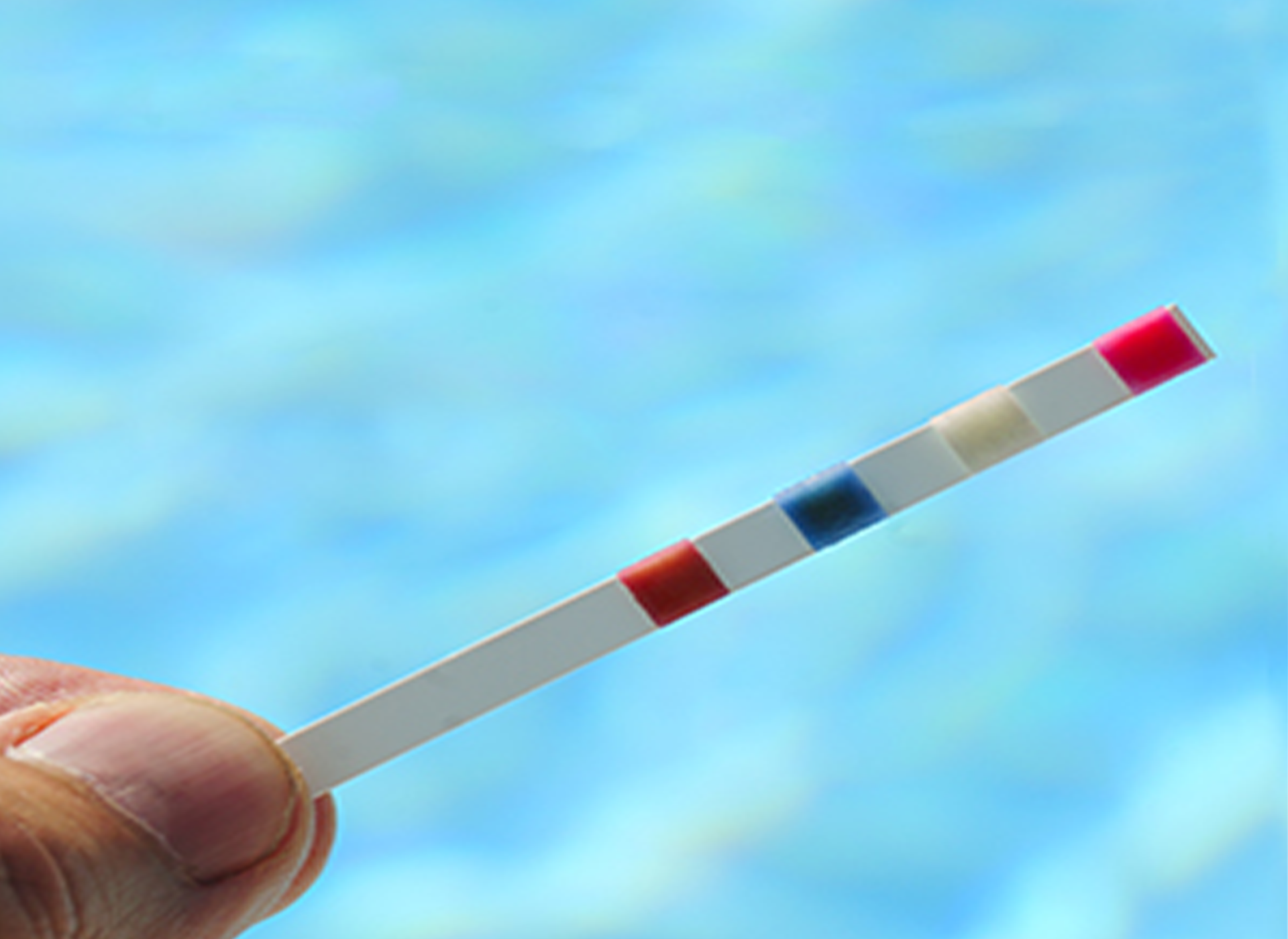
- What Do Pool Test Strips & Test Kits Measure?
- How Does Expiration Affect Accuracy?
- Tips for Managing Expiration Dates
What Do Pool Test Strips & Test Kits Measure
Pool test kits or test strips are used to check the chemistry of your pool water and both have their own advantages.
Test Strips
Test strips are pre-coated with reagents that change colour depending on chemicals in the water.
Test strips are easy and convenient to use and can check for free chlorine, total chlorine, pH, alkalinity, total hardness and stabiliser (CYA).
The reagents on the strips will degrade over time, especially if they’re exposed to air, sunlight or moisture.
Most strips have an expiration date printed on the packaging, even if the strips look ok, don’t use them after this date.
Test Kits
With test kits, reagents are added to a water sample, then colours are compared to a comparison chart to determine chemical readings.
Test kits are handy for checking extra parameters such as phosphates or metals.
The reagents in test kits will lose their effectiveness as they age. Don’t use them after their expiration date, as the results are no longer reliable.
Both testing options will help you to maintain the right chemical balance in your pool water.
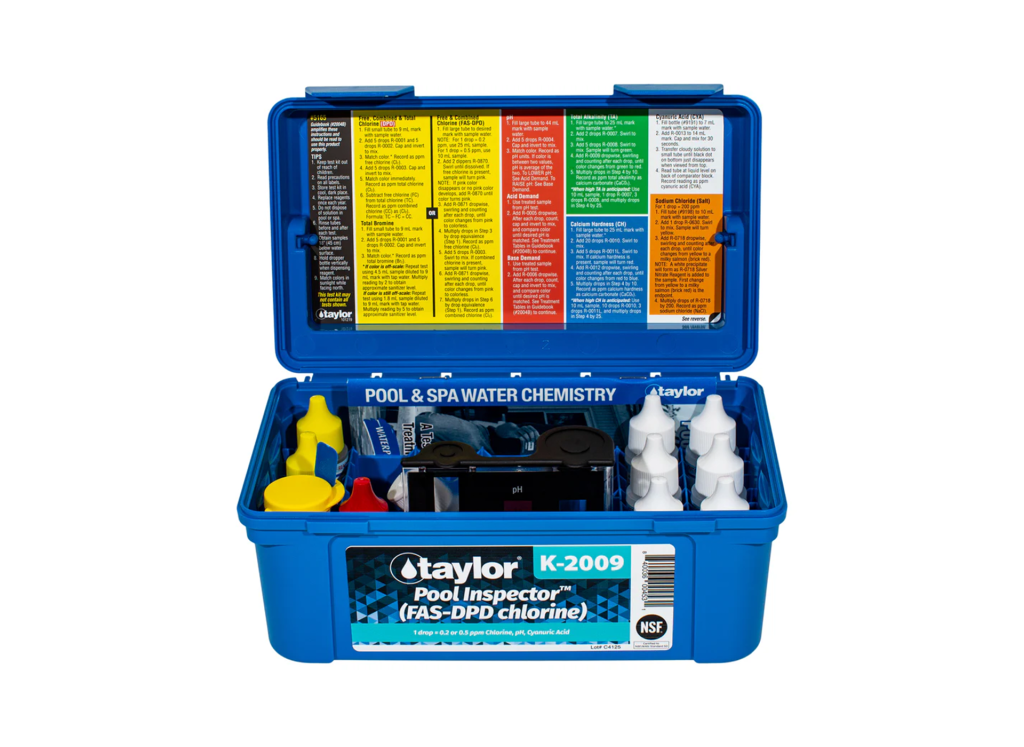
How Does Expiration Affect Accuracy?
The accuracy of your pool testing is really important for maintaining proper water chemistry.
If you use expired test strips or reagents, you could get misleading results.
Incorrect Chlorine Levels
If your chlorine levels aren’t between 1.0 to 3.0 parts per million (ppm), your pool might not be disinfected properly or could cause sore eyes and skin irritation.
pH Imbalance
Inaccurate pH readings can cause discomfort for swimmers and damage pool equipment and surfaces.
Keep pH between 7.2 and 7.8.
Alkalinity
Keeping alkalinity within the range of 80-120 ppm will help to minimise pH fluctuations.
When alkalinity is too low it can damage pool surfaces and equipment or if too high can cause cloudy water and make it difficult for chlorine to work properly.
Calcium Hardness
Calcium hardness should be between 80 and 500 ppm to prevent scaling and corrosion.
Stabiliser (CYA)
Keep the stabiliser levels between 20 and 40 ppm to protect chlorine being degraded by sunlight.
Stabiliser is not required for indoor pools.
Chemical Imbalance
Incorrect test results can lead to improper chemical adjustments, potentially affecting the water quality.

Tips for Managing Expiration Dates
To ensure your pool stays in great condition, follow these storage and expiry tips.
Check Expiration Dates Regularly
Always look at the expiration date on your test strips or test kits before using them.
Manufacturers usually print this date on the packaging, so look out for it.
Replace Expired Products
Don’t use test strips or reagents past their expiration date.
Regularly replace them for accurate testing.
Proper Storage
Keep your test strips and reagents in a cool, dry place away from sunlight.
Poor storage will affect their accuracy.
Follow Manufacturer Instructions
Each product might have specific storage and usage instructions, make sure you follow them to get the best results.

Pool test kits or test strips are used to check the chemistry of your pool water and both have their own advantages.
Test Strips
Test strips are pre-coated with reagents that change colour depending on chemicals in the water.
Test strips are easy and convenient to use and can check for free chlorine, total chlorine, pH, alkalinity, total hardness and stabiliser (CYA).
The reagents on the strips will degrade over time, especially if they’re exposed to air, sunlight or moisture.
Most strips have an expiration date printed on the packaging, even if the strips look ok, don’t use them after this date.
Test Kits
With test kits, reagents are added to a water sample, then colours are compared to a comparison chart to determine chemical readings.
Test kits are handy for checking extra parameters such as phosphates or metals.
The reagents in test kits will lose their effectiveness as they age. Don’t use them after their expiration date, as the results are no longer reliable.
Both testing options will help you to maintain the right chemical balance in your pool water.
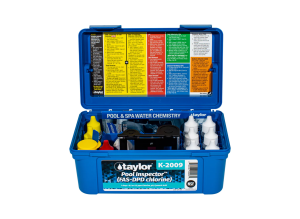
The accuracy of your pool testing is really important for maintaining proper water chemistry.
If you use expired test strips or reagents, you could get misleading results.
Incorrect Chlorine Levels
If your chlorine levels aren’t between 1.0 to 3.0 parts per million (ppm), your pool might not be disinfected properly or could cause sore eyes and skin irritation.
pH Imbalance
Inaccurate pH readings can cause discomfort for swimmers and damage pool equipment and surfaces.
Keep pH between 7.2 and 7.8.
Alkalinity
Keeping alkalinity within the range of 80-120 ppm will help to minimise pH fluctuations.
When alkalinity is too low it can damage pool surfaces and equipment or if too high can cause cloudy water and make it difficult for chlorine to work properly.
Calcium Hardness
Calcium hardness should be between 80 and 500 ppm to prevent scaling and corrosion.
Stabiliser (CYA)
Keep the stabiliser levels between 20 and 40 ppm to protect chlorine being degraded by sunlight.
Stabiliser is not required for indoor pools.
Chemical Imbalance
Incorrect test results can lead to improper chemical adjustments, potentially affecting the water quality.

To ensure your pool stays in great condition, follow these storage and expiry tips.
Check Expiration Dates Regularly
Always look at the expiration date on your test strips or test kits before using them.
Manufacturers usually print this date on the packaging, so look out for it.
Replace Expired Products
Don’t use test strips or reagents past their expiration date.
Regularly replace them for accurate testing.
Proper Storage
Keep your test strips and reagents in a cool, dry place away from sunlight.
Poor storage will affect their accuracy.
Follow Manufacturer Instructions
Each product might have specific storage and usage instructions, make sure you follow them to get the best results.

Introducing Effective Solutions
Simplify your pool maintenance routine with POOLWATER-PRO. Our software turns test-strips into accurate digital readings, right from your phone. Get instant alerts to know if your pool is safe to swim, plus any chemicals needed.
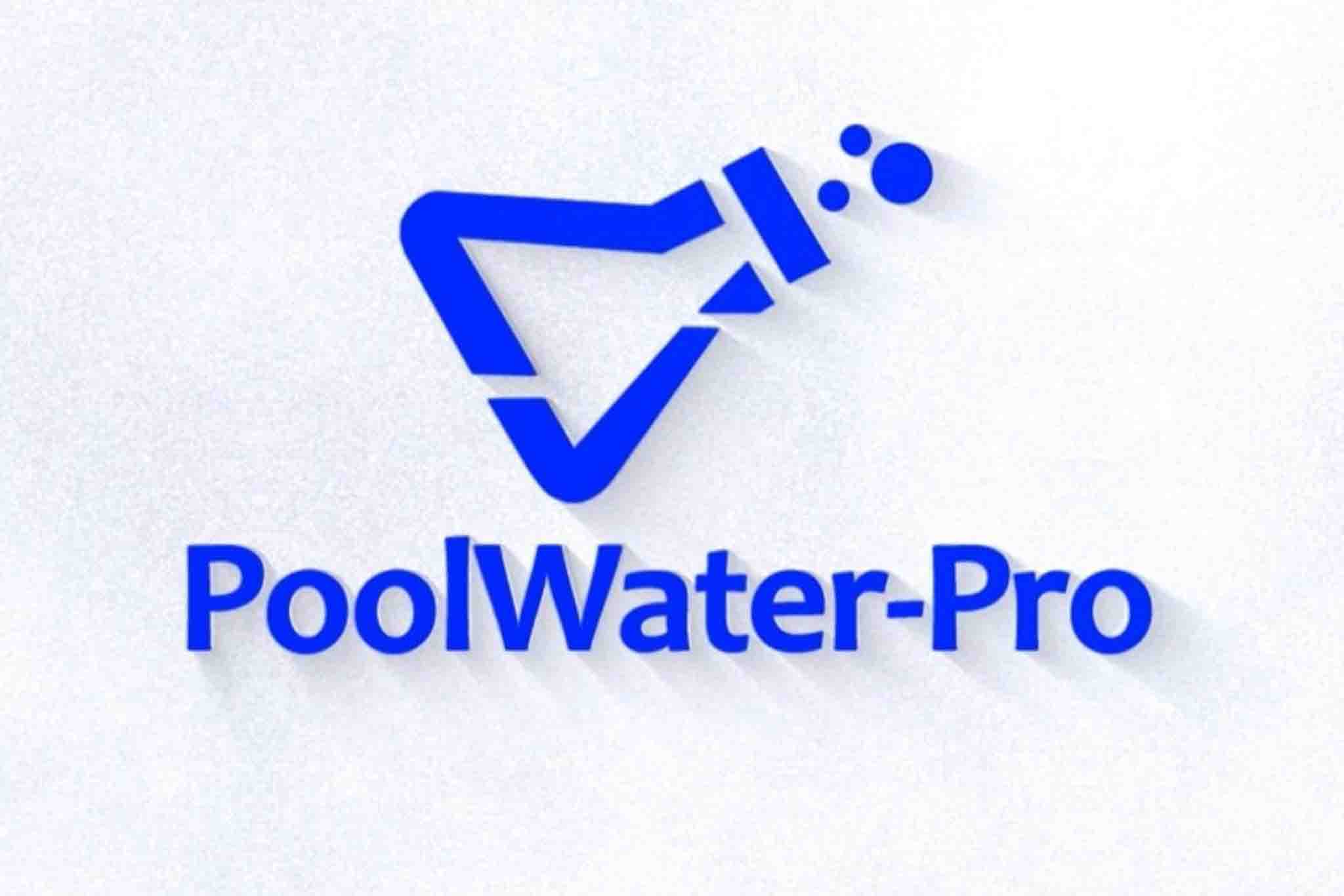
Introducing Effective Solutions
Simplify your pool maintenance routine with POOLWATER-PRO. Our software turns test-strips into accurate digital readings, right from your phone. Get instant alerts to know if your pool is safe to swim, plus any chemicals needed.
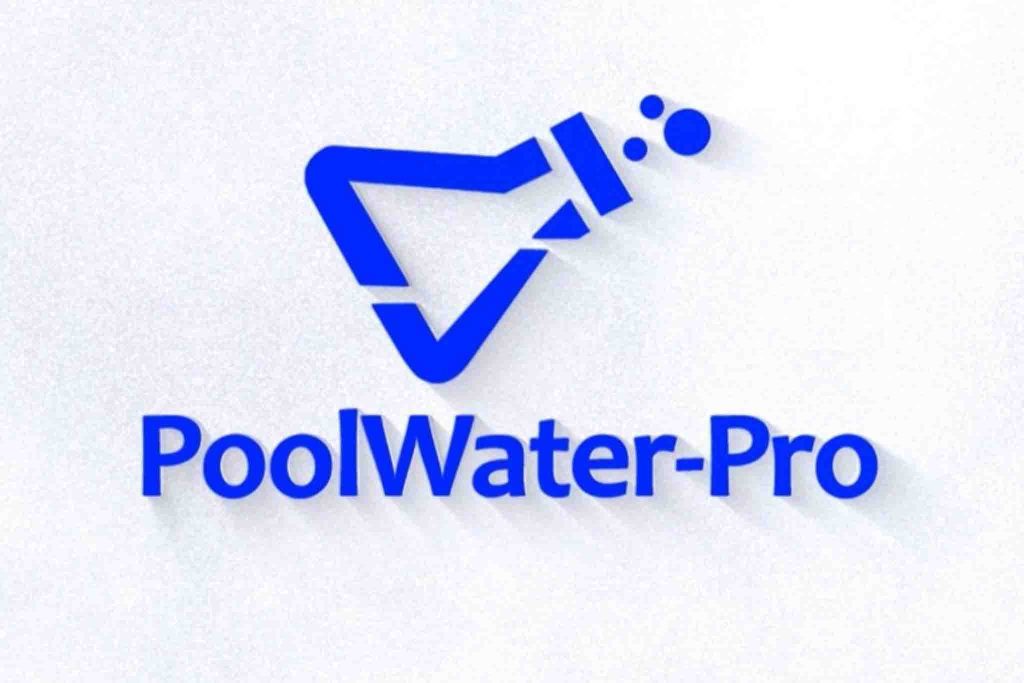
Your Path to Clarity
Watch this quick explainer video to see the platform’s features and how it can make pool care hassle-free.
Watch this quick explainer video to see the platform’s features and how it can make pool care hassle-free.




